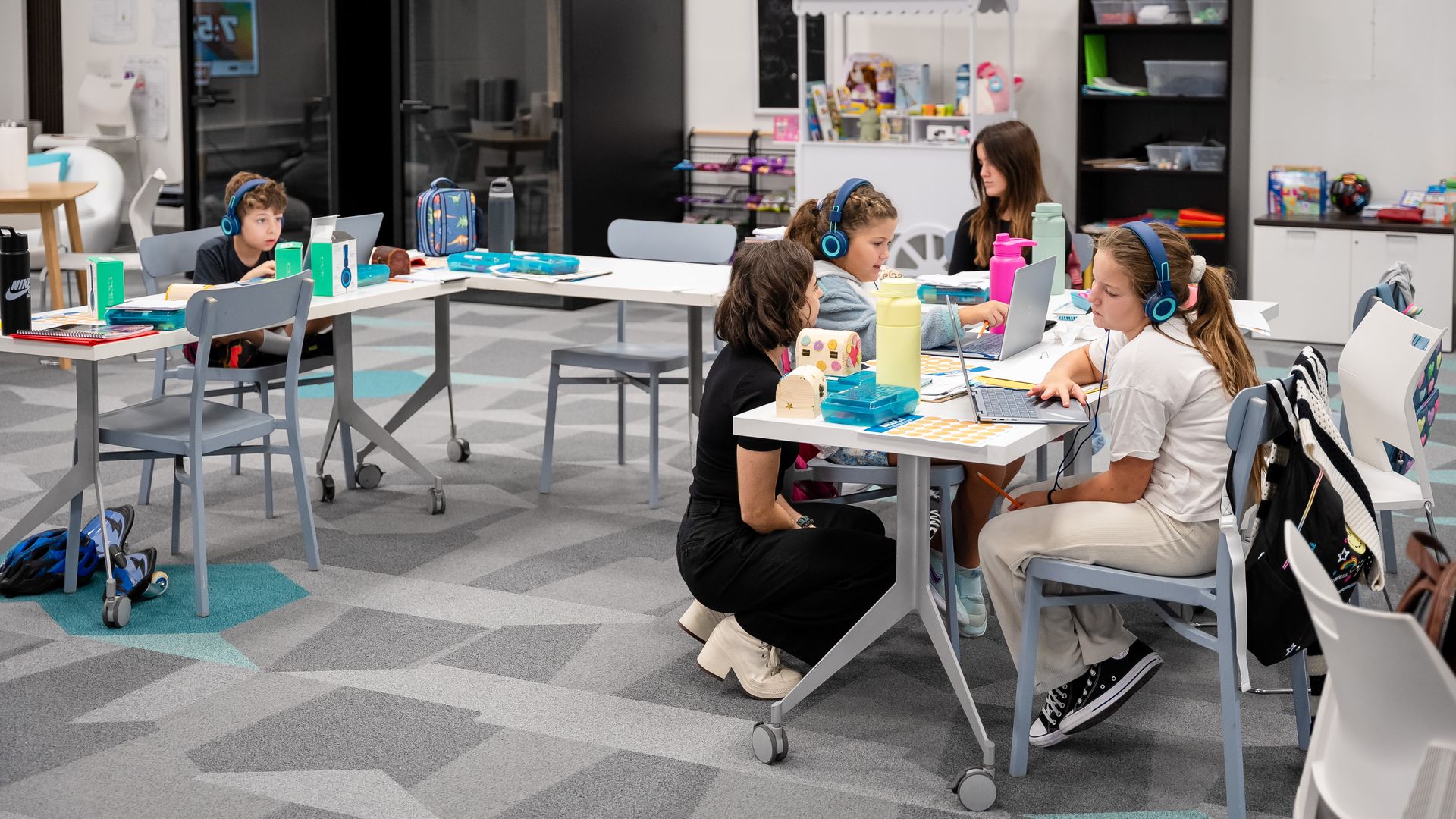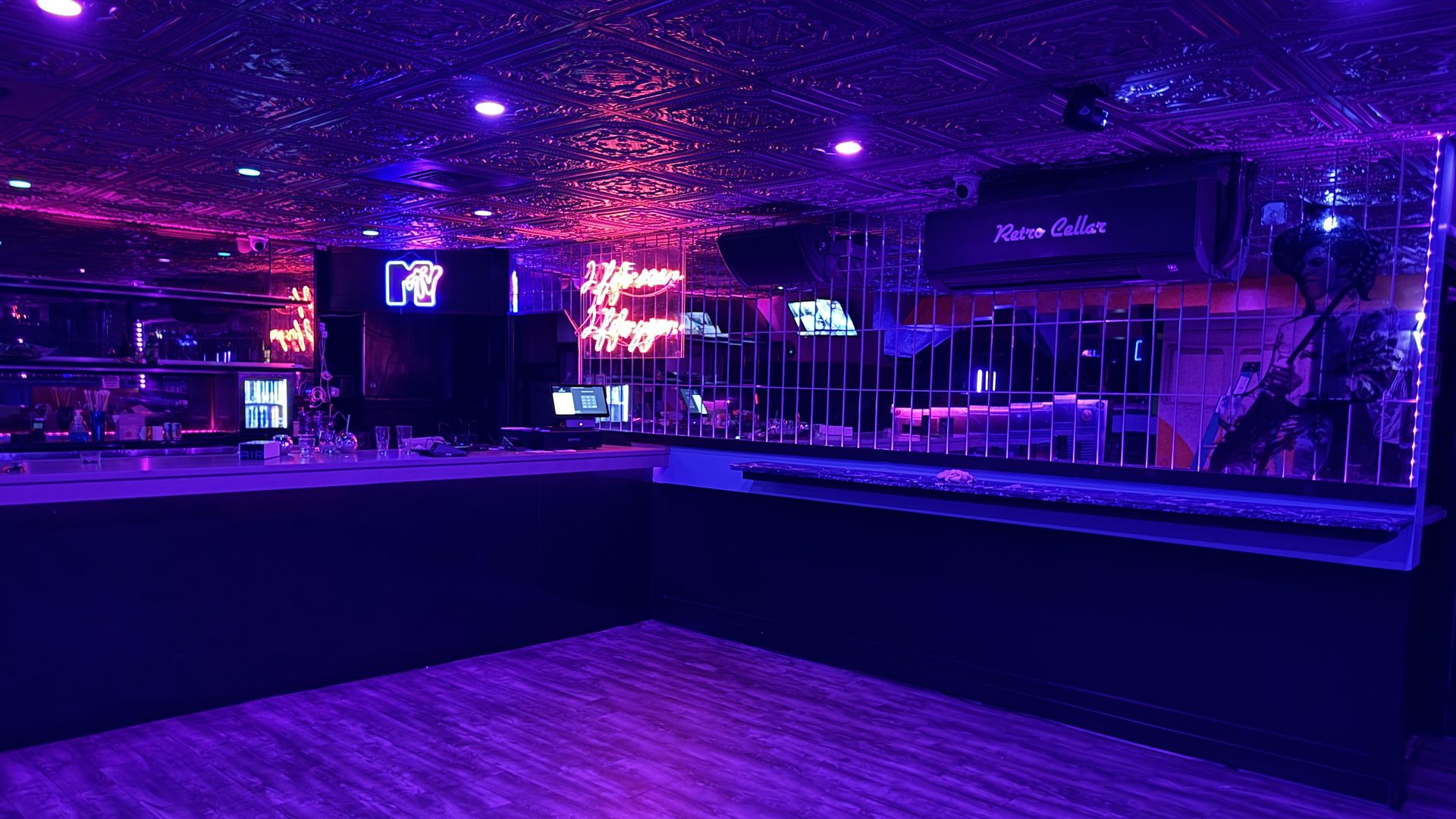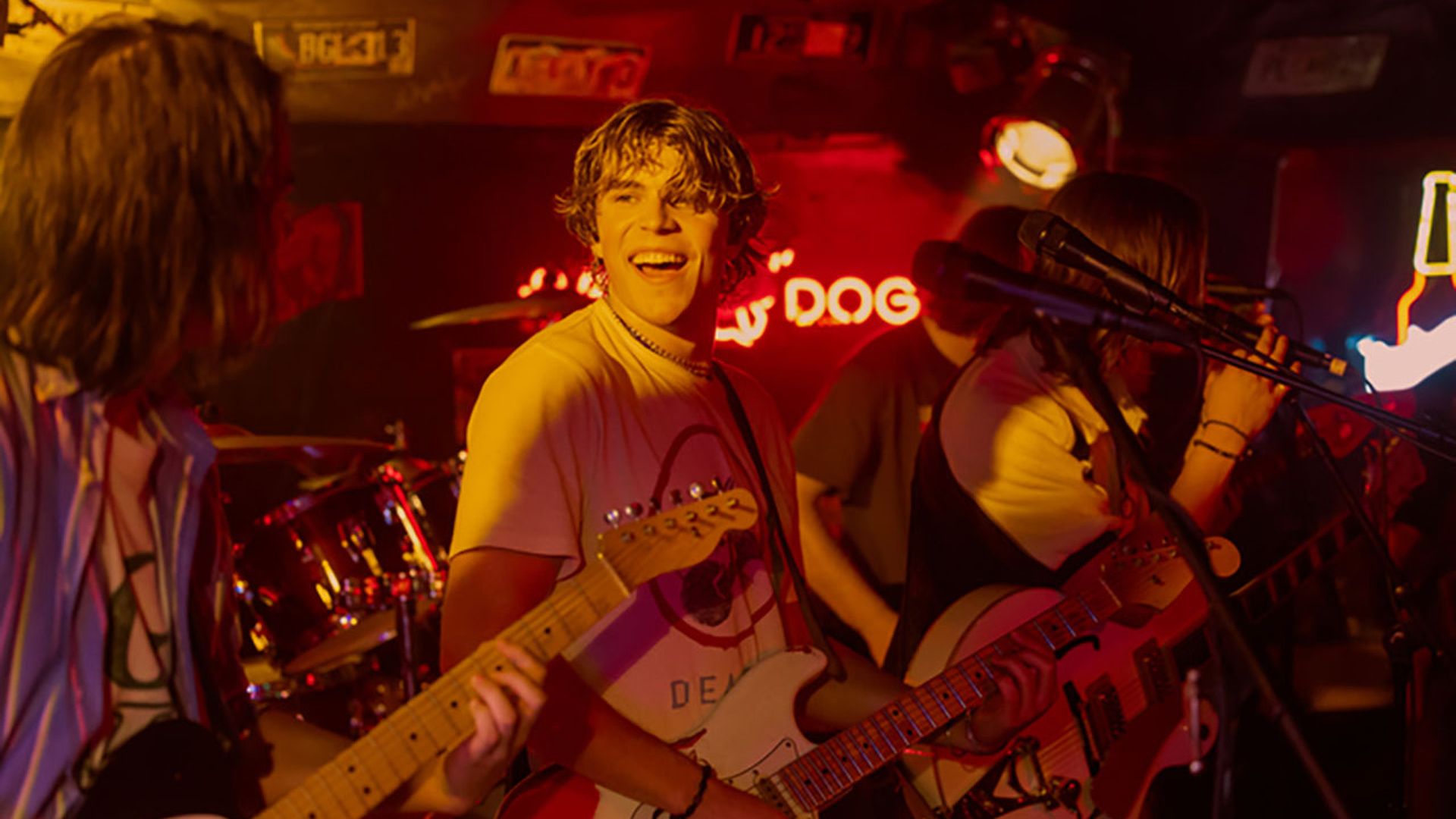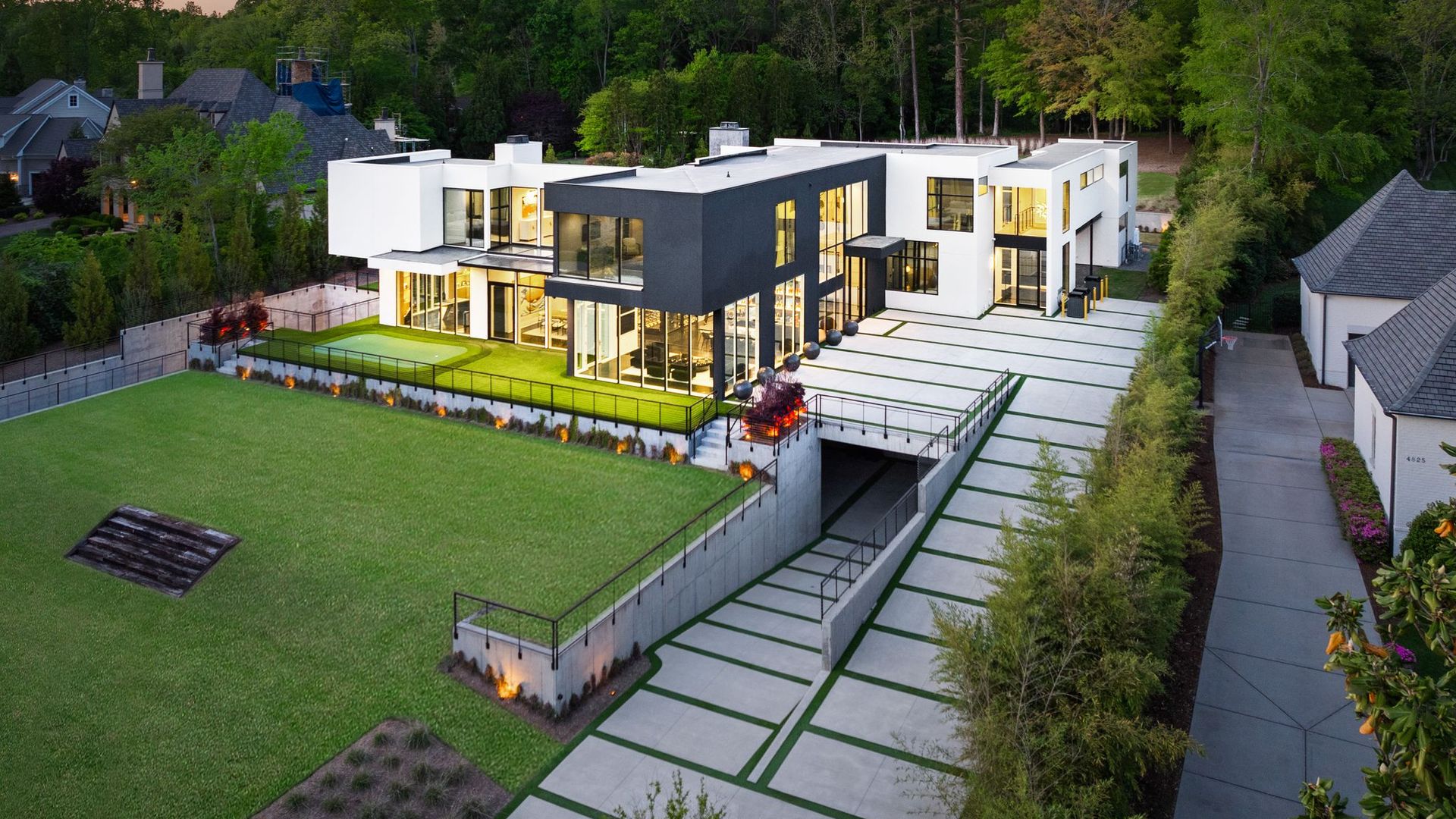AI-driven private schools are popping up around the U.S., from North Carolina to Florida

Courtesy of Alpha Schools
An AI-driven private school that teaches core subjects for just two hours a day is nearly doubling its U.S. footprint, adding eight new campuses from California to North Carolina to Puerto Rico.
Why it matters: With tuition starting at $40,000, Alpha Schools is riding the parental school choice movement while embracing the technology that will shape kids' futures — a challenge public schools are grappling with.
How it works: In Alpha Schools, students spend no more than two hours on core academics, then devote the rest of the day to developing life skills.
- AI models generate personalized learning plans for students, who then learn on third-party apps like Synthesis Tutor and Math Academy, as well as Alpha Schools' own programs. Each subject is taught in 25-minute sessions, with short breaks in between.
- Founder MacKenzie Price tells Axios that, unlike traditional schooling, Alpha Schools can ensure students master concepts before new material is introduced.
What they're saying: "If a kid comes to us and is behind, we're able to help catch them up," Price says. "If a kid comes to us who's been bored in traditional school because they're more advanced, they're able to really take the ceiling off."
- Afternoon skills workshops, such as a team bike race or running a lemonade stand, are designed to teach practical skills like financial literacy and public speaking.
- Instead of teachers, the schools employ "guides," who start at $100,000 a year. They don't create lesson plans or lectures. Think of them more like coaches, who work to motivate students and come from a range of backgrounds, from tech to law.
The other side: Skeptics have questioned the effectiveness of replacing teachers with AI and restricting learning to 25 minutes per subject.
- One of the core benefits of education is the socialization of young people, says Bryan Proffitt, vice president of the North Carolina Association of Educators. Teachers help students understand how to treat each other and how to relate to others' emotions.
- "Think back to your own high school days. You had your own quirky teacher. They made you reflect on who you are," Proffitt tells Axios. "(The idea that) machines are going to be able to meet those needs for our kids is absurd."
Zoom out: Alpha applied to open a public-school charter network in multiple states, but state boards in Pennsylvania, Texas, Utah, Arkansas and North Carolina rejected the idea, The New York Times reported.
- So far, only Arizona has agreed to partner with Alpha. It will open a virtual AI charter school this fall.
Case in point: Raleigh parent Jesse Miele — who calls the current education system a "death trap" — is considering enrolling his 8- and 4-year-old in Raleigh's new Alpha School. He says his children's private Christian school has failed to embrace technology.
- During a "simulation day," Miele says he was blown away by how a guide encouraged his timid son to make it to the top of a rock climbing wall — blindfolded.
- "This is about what is best for my children," Miele tells Axios. "If I have the resources to do it, then why wouldn't I?"
The big picture: Alpha School, which avoids political and social issues, is gaining more national attention, boosted by the support of billionaire Bill Ackman, a known critic of DEI.
- Price says the anti-DEI movement was not a driving factor behind the school's inception, although her disappointment in her daughter's public education was.
What's next: Alpha will launch this fall in Santa Barbara, Calif.; New York City; Chantilly, Va.; and Raleigh and Charlotte, N.C.; before expanding to Houston, Tampa and Puerto Rico.
- Alpha Schools struck a deal to open in some Guidepost Montessori buildings. Some campuses, such as the North Carolina ones, are delayed as they work out the kinks of sharing a space.
- Existing locations are in Scottsdale, San Francisco, Miami and Palm Beach. There are also five in Texas, including Brownsville, home of Elon Musk's SpaceX.
The bottom line: "I would love to be able to bring this model of education to more and more people and make it more accessible," Price says. She says she hopes the public system "will embrace this idea."
- Proffitt, of NCAE, says: "It's a $45,000 private school run by a for-profit company. None of those things should have to do with the education of young people."
More Charlotte stories





